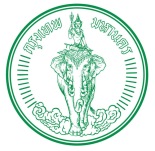The Intricacies of Thai Patent Licenses
Not as widely discussed as its Trademark counterpart, the intricacies of Patent Licensing Agreements (“Patent Licenses”) in Thailand has not often been brought to light: where in fact the many ‘dos and don’ts’ that are more volatile could easily snare an unwary proprietor.
Fundamentally, Patent Licenses have to be in writing and submitted with the Department of Intellectual Property (“DIP”), a Provincial Commercial Office or Government Office as prescribed by the Director-General of the DIP (“Director-General”). This recordal is necessary.
Section 41 of the Thai Patent Act provides that the Patent License must comply with the requirements and procedures prescribed by the Ministerial Regulations. This read with Section 152 of the Civil and Commercial Code renders Patent Licenses that are in contravention of these fundamental rules, void.
Slightly distinct from Trademark Licensing Agreements, it has to be borne in mind that delicate care and much emphasis has been placed in regulating the exclusivity of Patent rights, especially as regards to monopolization and mala fide distribution of those rights. In tandem, wider, encompassing powers have been given to the DIP and its Director-General.
This is incorporated vide stipulations such as Sections 39, 41 and 55 of the Thai Patent Act whereby the Director-General has the discretion whether to refuse or accept recordal of the License, or even request the Board of Patents to cancel the Patent itself where the Patent License is not in accordance with Section 41.
This wide provision, together with the Director-General’s discretion in granting compulsory licences to replace Patent Licenses such as that provided in Section 45 and 46: in effect imposes a requirement of ‘reasonableness’ for a Patent License to be registrable.
Especial care thus has to be taken with the drafting of Patent Licenses. There are many Patentee/Licensor-preferential clauses that could completely negate the Patent License in its entirety if it were incorporated. In these respect, for instance, the Ministerial Regulation No. 25 (1999) was introduced in view of preventing contractual oppression by the party with more bargaining power.
This Regulation sets out a number of terms restricted from Patent Licenses, examples of such are Clause 3(1) which prohibits/regulates clauses restricting the acquisition of materials to be used in production by the licensee from the patentee or a distributor designated by the licensor, Clause 3(7) which prohibits clauses restricting licensees from exporting products for sale or distribution overseas or requiring permission from the licensor to carry out the same and Clause 3(10) which prohibits clauses which allow the licensor to regulate the selling price or market of the manufactured products.
Put simply, ‘tying arrangements’ and terms tending overtly to the licensor are generally prohibited from Patent License Agreements. Moreover, Section 39(1) of the Patent Act strictly disallows the imposition of any condition, restriction or any royalty term which is unjustifiably anti-competitive.
Further, other Statutory Provisions like the Thai Unfair Contract Terms Act 1997, Trade Competition Act 1999, Civil & Commercial Code and Revenue Code 1938 all have considerable determination of Thai Patent Licenses. These ‘other’ provisions have to be treated with caution as they are potentially novel from other jurisdictions for instance the great discretion given to the Courts in determining what is ‘unfair’ in the Unfair Contract Terms Act and the Trade Competition Act which provide a notably broad and restrictive anti-competitive threshold that the terms of Patent Licenses have to be adherent.
In respect of litigation, although it may seem certain that the licensor’s right to sue in infringement proceedings would naturally vest in the licensee: this aspect of Patent Licensing still remains a lacuna. The Central Intellectual Property and International Trade Court (“CIPITC”) had in the case of Phuket Cement Sale Co., Ltd v Noppawong Construction Co., Ltd and Co. opined that the licensor had no locus standi to bring the action because the Patent License only expressly authorized use of the Patent rights while omitting to grant clear authority to the licensee to take legal action on the licensor’s behalf.
It is clear that to achieve the intended derivation of rights, a properly calculated, well drawn Patent License covering all bases is essential while relentlessly guarding against the ‘dont’s’.
What more now in light of Thailand’s increasing worry of unfair monopolization of Patent IPRs, ensuing in wide compulsory license powers to bestowed upon the DIP: it is a fair estimation that the Thai Patent Office and relevant authorities will be particularly wary of Patent Licenses in general and be extra vigilant in ensuring that the threshold for compliance is high.
Patentees that have vision of licensing in Thailand have to be aware of the various intricacies of Thai Patent Licensing and ensure that much thought has been invested in the License Agreement itself.
.
.
For more information on the foregoing, please contact the author JOEL LOO SEAN EE, the Bangkok-based Senior Regional Counsel at Kelvin Chia Thailand and a member of Kelvin Chia Partnership’s Regional Practice Group at Joel.Loo@KCPartnership.com.
——————————————–
This article is published to provide general information only and is not offered as specific advice on any particular matter – This information is to be taken subject to proper consultation with a lawyer.






















